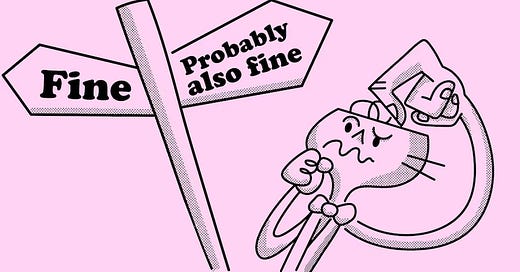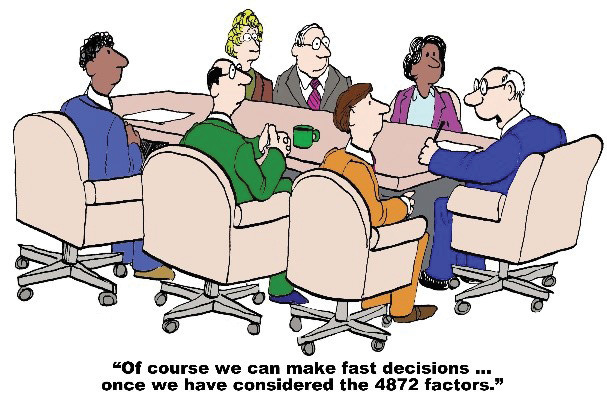Recently, the notion of maximizing vs satisficing – a hybrid of the word satisfying and sufficing coined by Nobel laureate Herbert Simon in 1956 – came up in a college friend group discussion. I hadn’t heard of this decision-making framework before in these exact terms, though its components are pretty familiar. Basically, a maximizer exhausts all options and optimizes (or at least, attempts to) for the best choice after expending time and energy researching the options. A satisficer accepts good enough (“are my needs met?”), doesn’t obsess over alternate options, and can move on after making the decision. Generally, satisficers are happier with their decisions, even though maximizers might make “better” decisions.
I am more naturally inclined to maximize, but there is the rare category where I can accept ‘good enough’ as good enough. For instance, I can book a complicated flight itinerary without thinking twice about it or revisiting to see if better options opened up, but I will agonize over the best duvet cover to buy in terms of bang for buck, often reading multiple reviews from multiple sources. It generally feels like an unproductive waste of time, and then I feel guilty for falling into the overthinking and maximizing trap. At the end of the deliberation and diminishing returns, I’m not even sure how happy I feel with my choice. I read something in a similar context about how online shopping has become so overwhelming that most people end up abandoning their carts. Shopping for mattresses was one of the cited examples. Well, at least I’m not alone.
I now also wonder if my habit of constantly changing my furniture plan in my apartment has something to do with trying to find the “best” orientation and never feeling satisfied even when the status quo is working perfectly fine.
This internal struggle came into play again on a recent trip when we checked into our hotel room in London and noticed that the only windows in the room were facing a concrete wall. The wall was a few feet away so there was a tiny bit of a light well, but it was still not ideal. The debate in my mind began – I struggled with the idea of settling for this because it was FINE and totally serviceable and of course wondering if there was a better option… As I dilly-dallied making a decision (I generally hate sounding like a complaining guest and I really wanted to be ok with the room and not looking further!), my partner called down to reception and asked. They said the only other option was smaller and faced the interior restaurant. And mentioned that they had actually “upgraded” us to a slightly bigger room, so I said, “It’s fine, we’ll just stay in this room then.” I made peace with this decision but as my partner and I are both maximizers (he, even more so), he then suggested we at least *see* the other room before making our final decision. He went to see that and then we went to see another room that would cost ~80 pounds more per night. We ultimately decided to keep our original room, and then collectively sighed for the waste of time and energy that little exercise ultimately was.
As someone who values my time (my partner even more so!), it’s always incongruous to me how much time we devote in these decision making processes that feel highly inefficient and are taxing on our mental health. I know for him it’s particularly hard to turn it off. His desire to optimize runs deep. It’s also hard to know when maximizing might pay off and when it will just drain your energy and leave you feeling worse.
So then I wonder – is it possible to train yourself to be a satisficer and stress less about decision making, especially when it comes to non life-altering decisions? And how does one go about doing so if it possible? Or, is this whole thought process ironically just another way of maximizing?






Ah, I totally feel you! My guide is to determine the long-term impacts/significance/value of that particular decision. Decision paralysis wears me out, so I choose to compartmentalise and let some things go once I'm satisfied, but proceed to mull over the rest!
I know how you feel and found the book, The Paradox of Choice by Barry Schwartz so interesting. I am constantly comparing camera gear.....